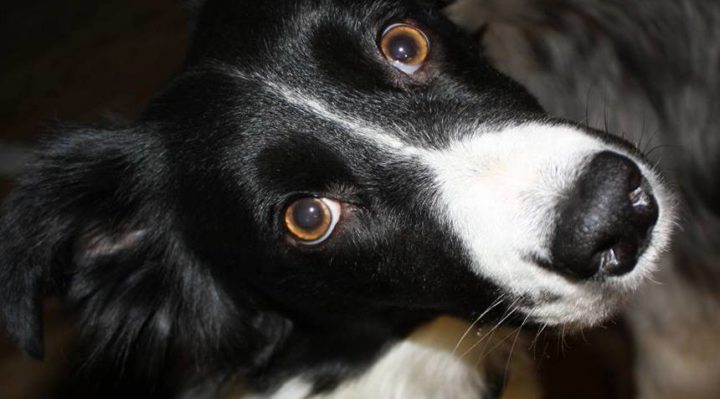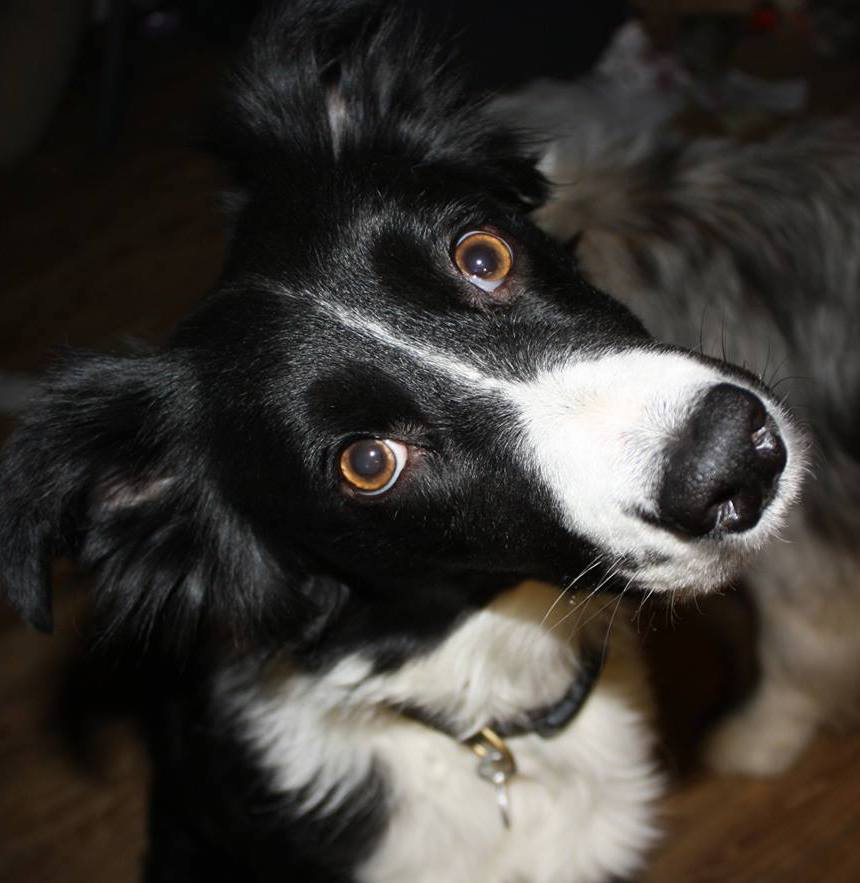
You’re enjoying a visit to a local park on a pleasant day. You realize you need to make a stop at the park’s public restroom. You enter the restroom. You look around. No one at the sinks or mirrors, no feet under the stall doors. You choose a stall and go into it. You hear footsteps, laughter, and what you guess to be two adults entering the restroom. Then you hear a voice: “Hello? Are you in there? Are you done yet?” There is loud banging on the door to your stall. You pull your clothes into order, unlatch the door, and open it. Two total strangers are standing in front of you, laughing and pointing. “Oh, no,” one of them exclaims. “You’re not our friend!”
You stand there, apprehensive, not knowing what to do.
The two strangers barrel forward. One grabs your hand and starts shaking it forcefully, the other pats you (hard) on the head. You stumble backward into the stall. You trip over the toilet. The two strangers, red-faced and laughing louder, pull you up by your arms and set you down outside the stall, patting you (hard) on the back and apologizing for mistaking you for their friend.
Your heart races and your body shakes. You feel threatened and confused. You feel awkward and embarrassed. You don’t know if you are going to be mugged or asked to join their picnic.
You’re standing in line at an outdoor cafe, waiting to pick up your order. Your name is called and you step forward but, before you reach the counter, a total stranger, much bigger than you, runs up and hugs you, almost knocking you to the ground. You manage to stay on your feet but you are powerless to escape this person’s hold. The stranger smells bad and is dressed oddly. You struggle to get away but the stranger holds you even tighter. You can’t breathe. You are frightened.
You’re sitting by yourself in the waiting area of a hospital emergency room. Your eyes are red and running. The waiting area is not extremely crowded; there are empty chairs and couches. You are leafing through a magazine when someone bumps against you, knocking the magazine to the floor. The stranger sits in the next chair, pulling it closer to you. The stranger reaches out, touches the sleeve of your jacket, then strokes your hand repeatedly. You don’t know what to do.

Photo by Marcy Rauch
Encounters with strangers can be scary, especially when the strangers act oddly or inappropriately for the circumstances. In public, we humans feel some safety, of course. In a hospital waiting room, a security guard will be nearby, plus mental health professionals. At an outdoor cafe, other patrons will come to our aid; certainly staff would help. In a public restroom, we could cry out, scream, or run, unless the strangers incapacitated us—there are other humans nearby. In more isolated places, with no chance of help nearby—in the dark, on the road, home alone? Yes, in those circumstances, encounters with strangers can be terrifying and, sometimes, truly dangerous.
Imagine yourself in any of the scenarios I’ve described—you, alone, in an encounter with a stranger or strangers, in a public place. Think about those times you’ve been alone and not in a public place . . . on the road, in the dark, without a phone. Take it one step further: imagine that you’re in a foreign country; you don’t know the customs, you don’t understand the language.
You do not want to go there, do you?
It’s anthropomorphizing at its best to imagine that your dog “feels” the same emotions as you do. It’s presumptuous to imagine that we humans all feel the same emotions in a given situation—clearly, we do not—so let’s not assume we’re reading the dog’s mind now. Let’s instead just empathize with the dog by imagining how we might feel in his place, in a situation with a stranger.
Alarmed, unsure, nervous, frightened, threatened?
These are not emotions that most humans would choose to feel.
Yet pet dogs are put through encounters with other dogs far more frightening to them than any of the human scenarios I described would be to any human. And they are put through those encounters on a daily basis, every time they’re walked in public… by the humans who proudly proclaim, “He’s friendly!” as their dog races down the hill, off-leash of course, to confront your dog. And when you beg, “Please call your dog!” the humans’ response is invariably, “He just wants to say hi!”
Your dog is being traumatized, attacked. Your dog will take months to recover.
Their dog has had a chance to say hi.
I know why it happens, and I’m going to tell you the secret.
Those humans can’t or won’t control their dog.
They haven’t trained the dog to walk on a leash. They let the dog run loose because the dog can’t walk on a leash.
They say their dog is friendly because that’s how they perceive it. They’re not thinking about you. They’d be much more likely to make an effort to retrieve the dog and pull it away if you were alone, without a dog, and you were begging, “I’m terrified of dogs!” They might empathize!
They might be thinking that all dogs are like their dog, wanting to be “friendly.” They might not be thinking about your dog at all. They’re not cruel, really, it just seems that way. They don’t know any better.
They don’t notice that your dog is in the middle of defecating and you’re waiting to pick it up. They don’t consider that your dog might be frightened by the fast approach of a bigger dog. They perceive no problem in letting their dog “greet” other dogs in the waiting room of a veterinary clinic!
They certainly don’t seem know that their own dog is acting like an out-of-control maniac, flinging himself at total strangers, human and canine. They seem to have no clue that their own dog is a basket case behaviorally and is statistically quite likely to end up in a shelter for that reason. They don’t seem to realize that your dog (and you!) could be traumatized by their dog’s behavior. They seem to believe they’re doing the best for their canine companion, letting their dog live a “natural” life.
That’s crazy, of course.
Dogs are not “socialized” by mugging or being mugged by each other—no more than humans are. To pretend that one is allowing one’s dog to live a “natural” life by letting the dog physically accost other dogs is as transparently selfish as letting one’s dog eliminate in a public space without cleaning it up.
To believe that one is doing one’s best for an animal companion by allowing it to traumatize other animals or humans with its “natural” behavior is beyond selfish: it is delusional.
I know why owners of loose dogs get angry when you ask them to leash up. I’m sure many of you guess it’s because they feel entitled to let their dogs run loose—they think the leash law should not apply to them. They’re scofflaws, you say. They think they’re special. I disagree.
I think they’re embarrassed that their dog can’t walk on a leash.



